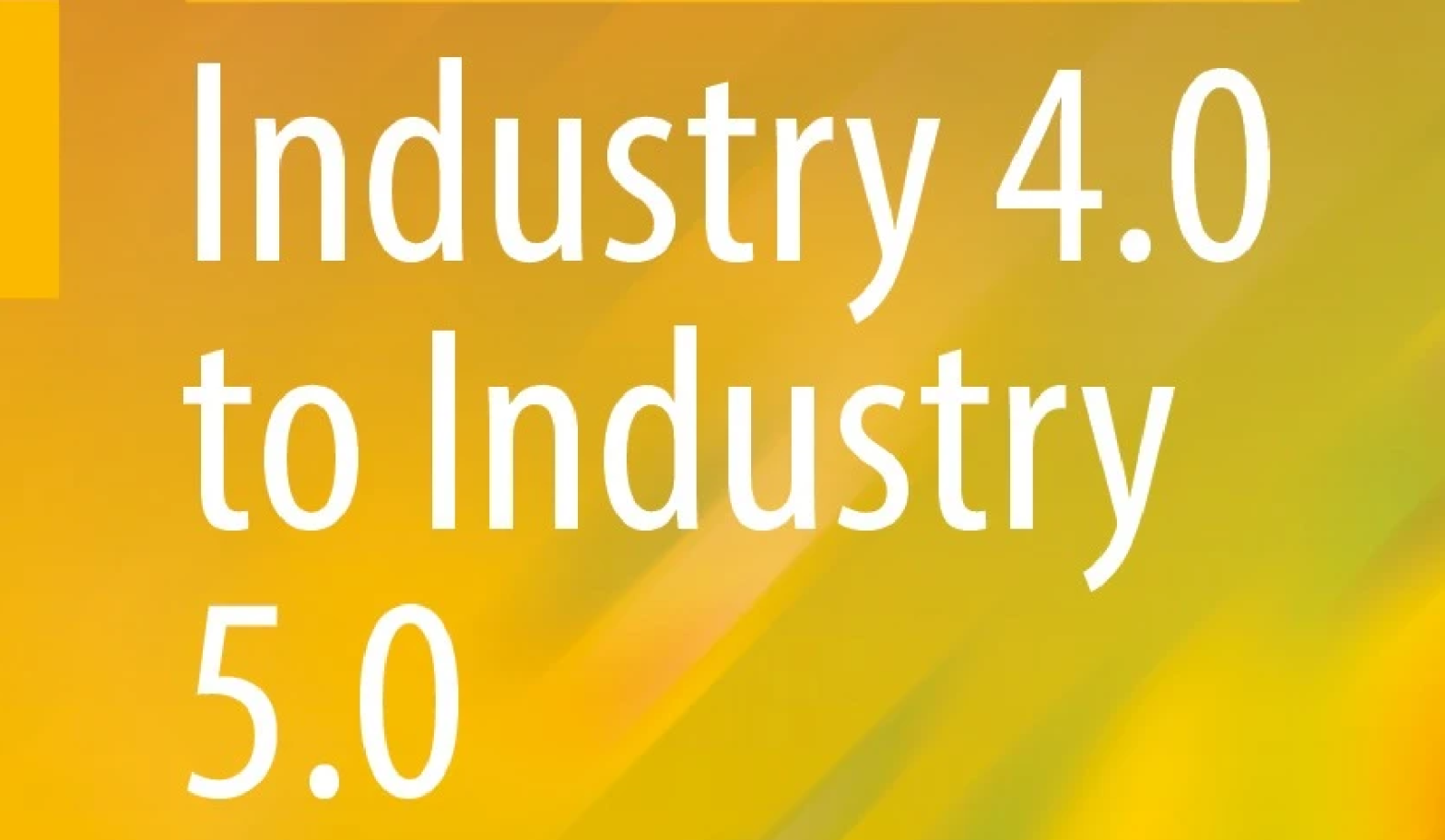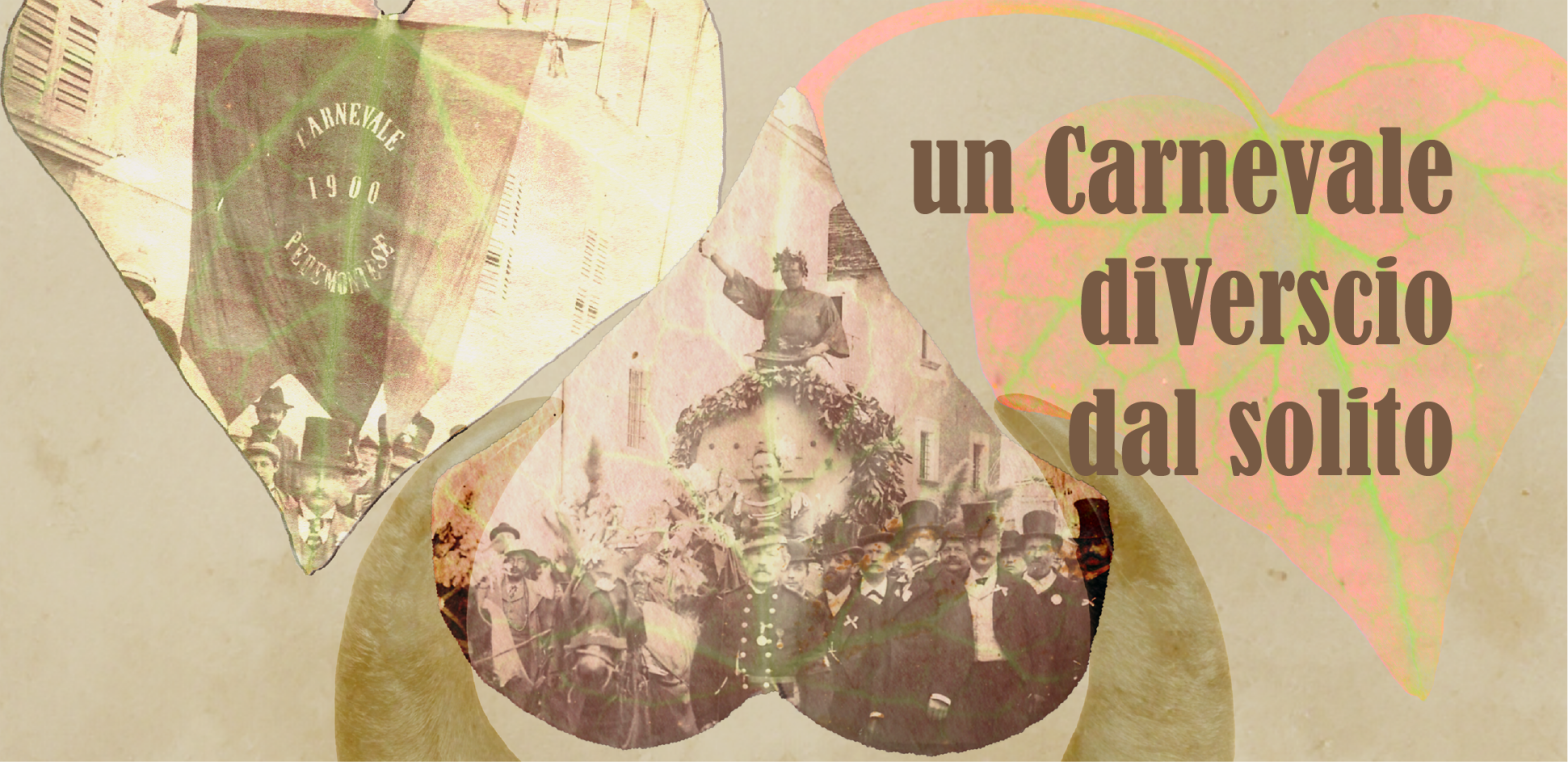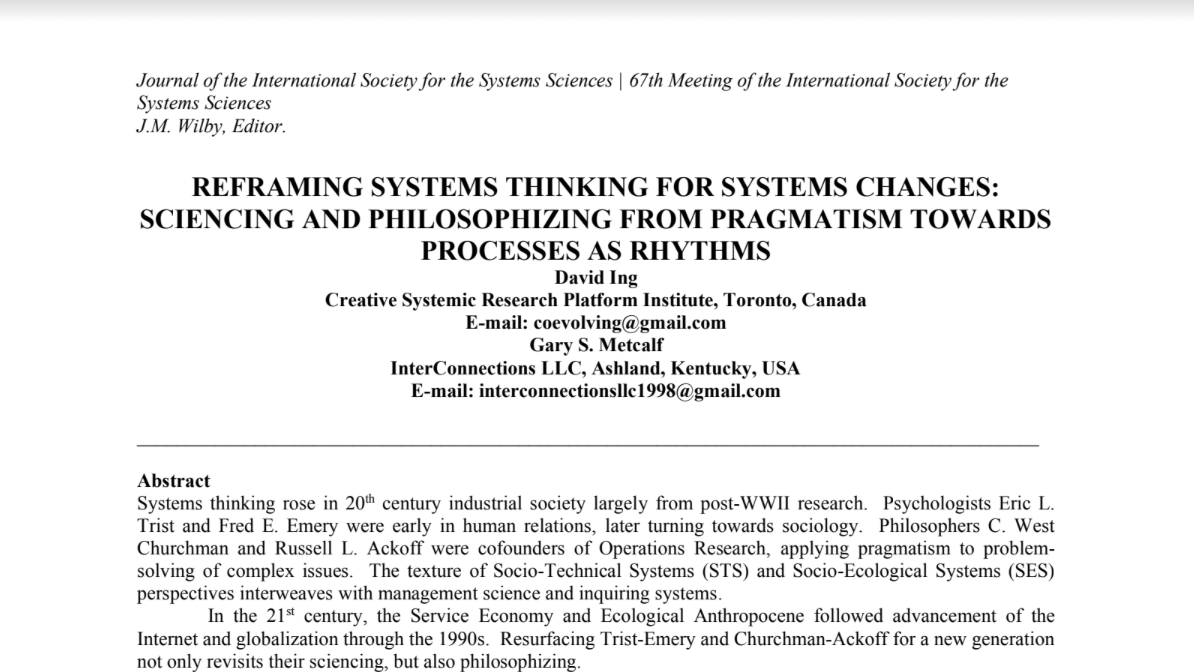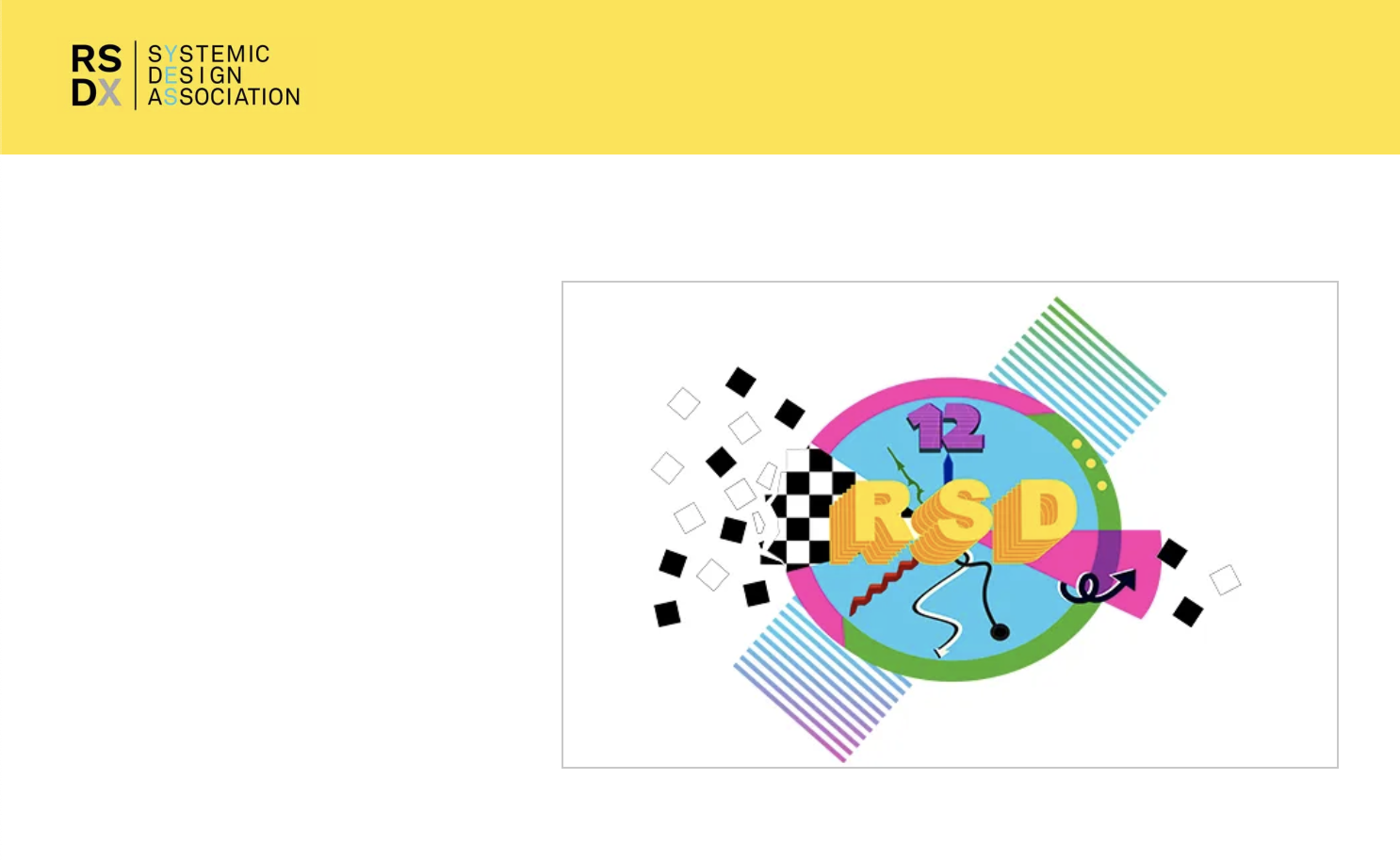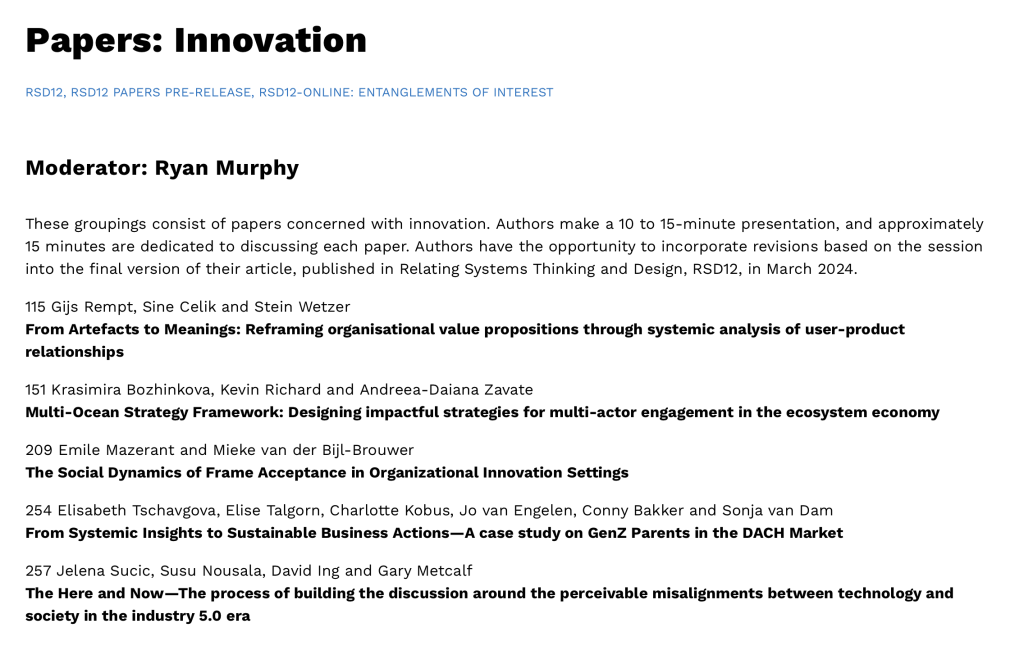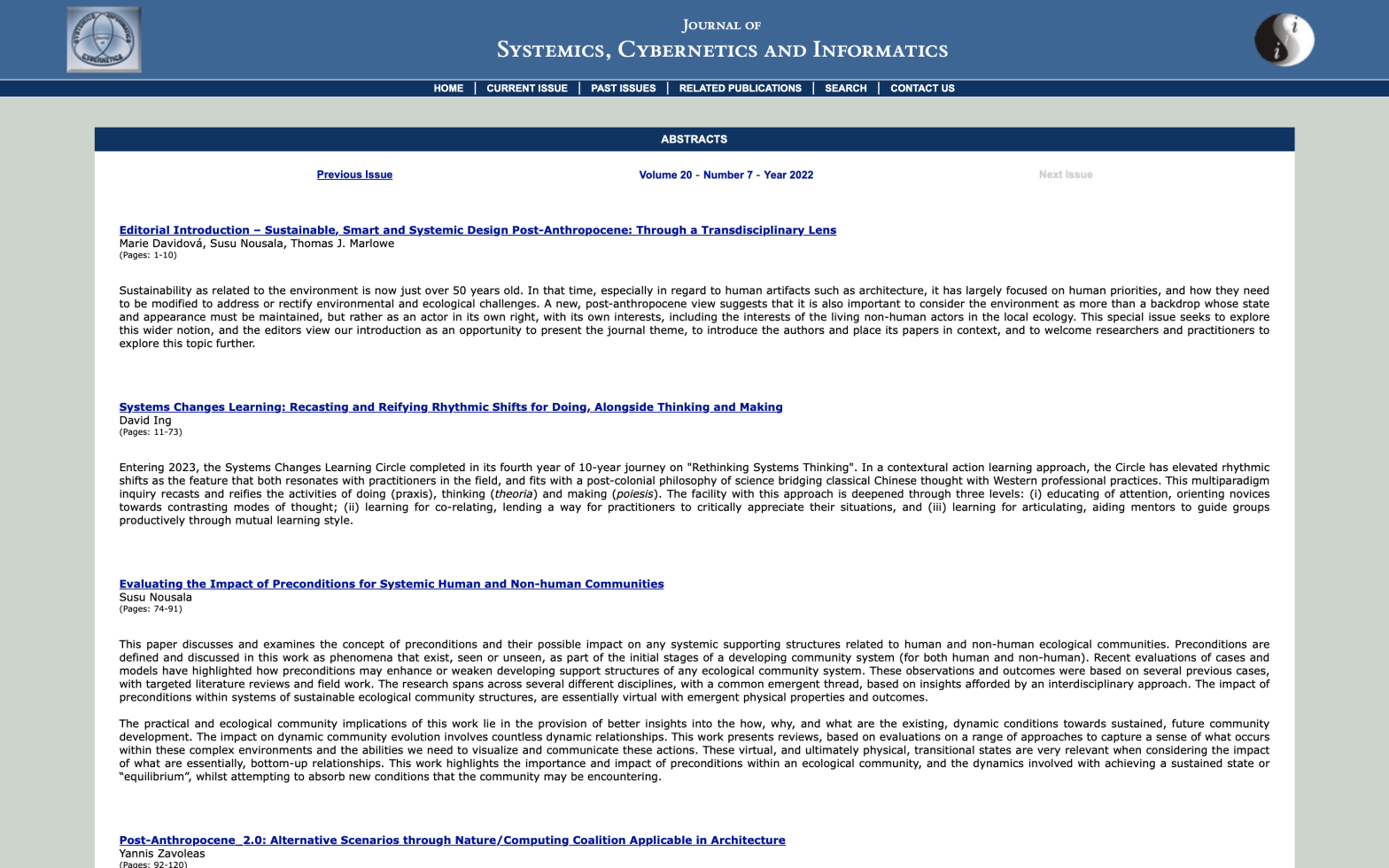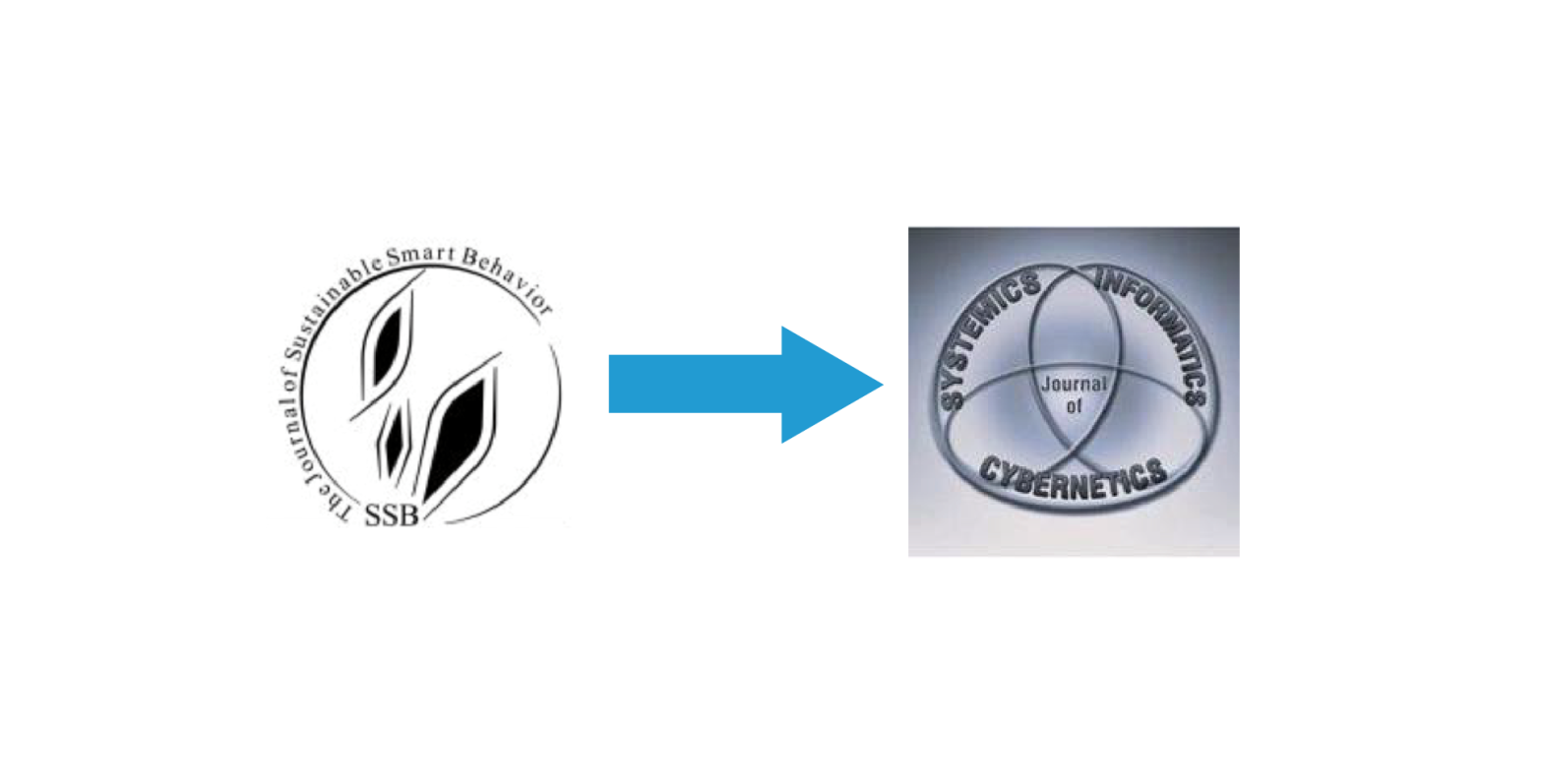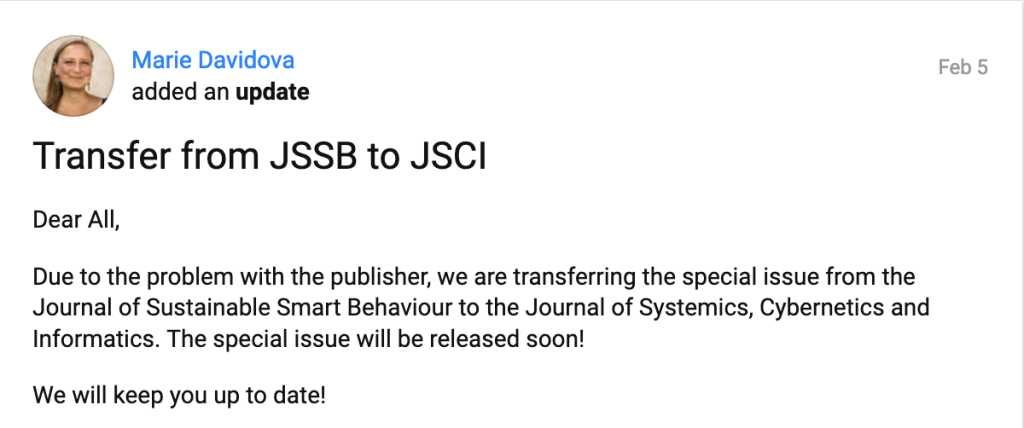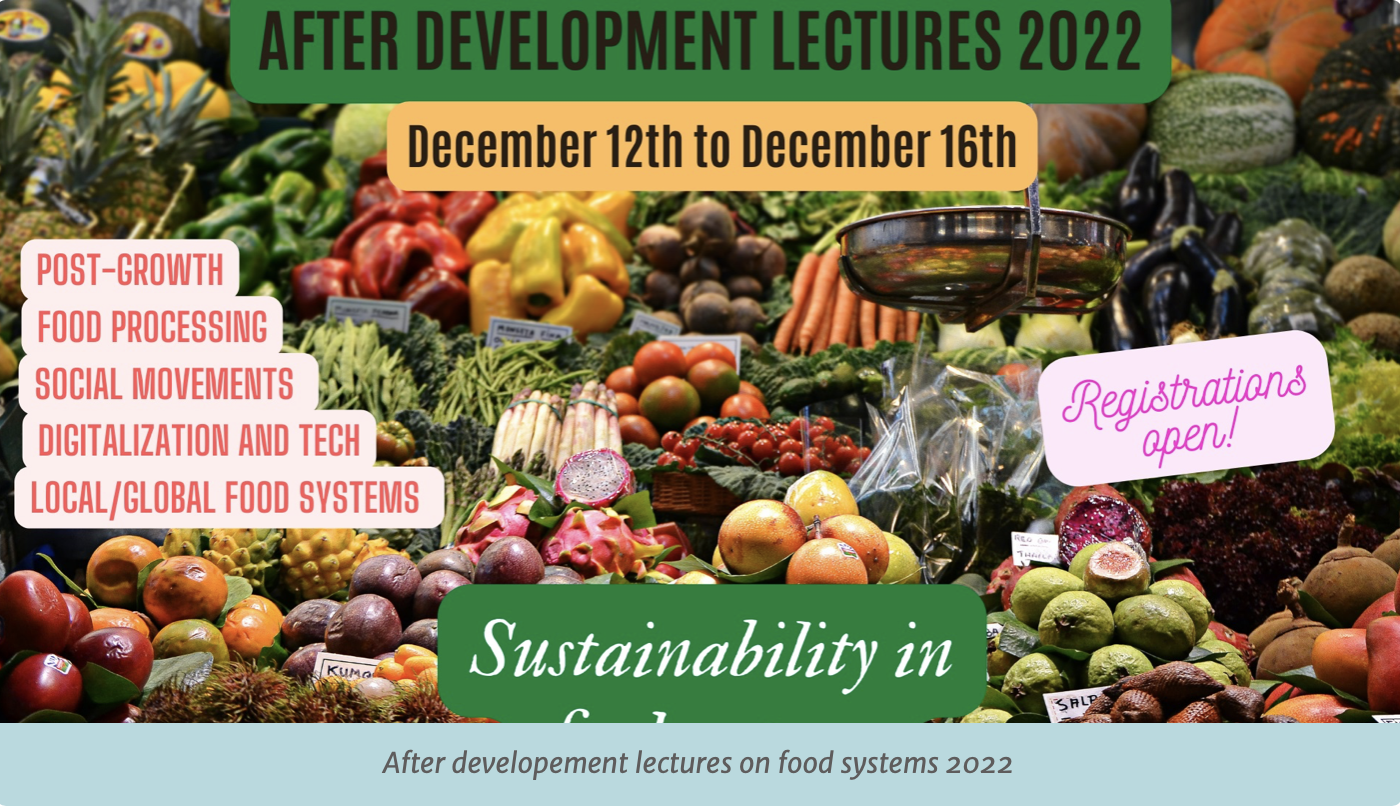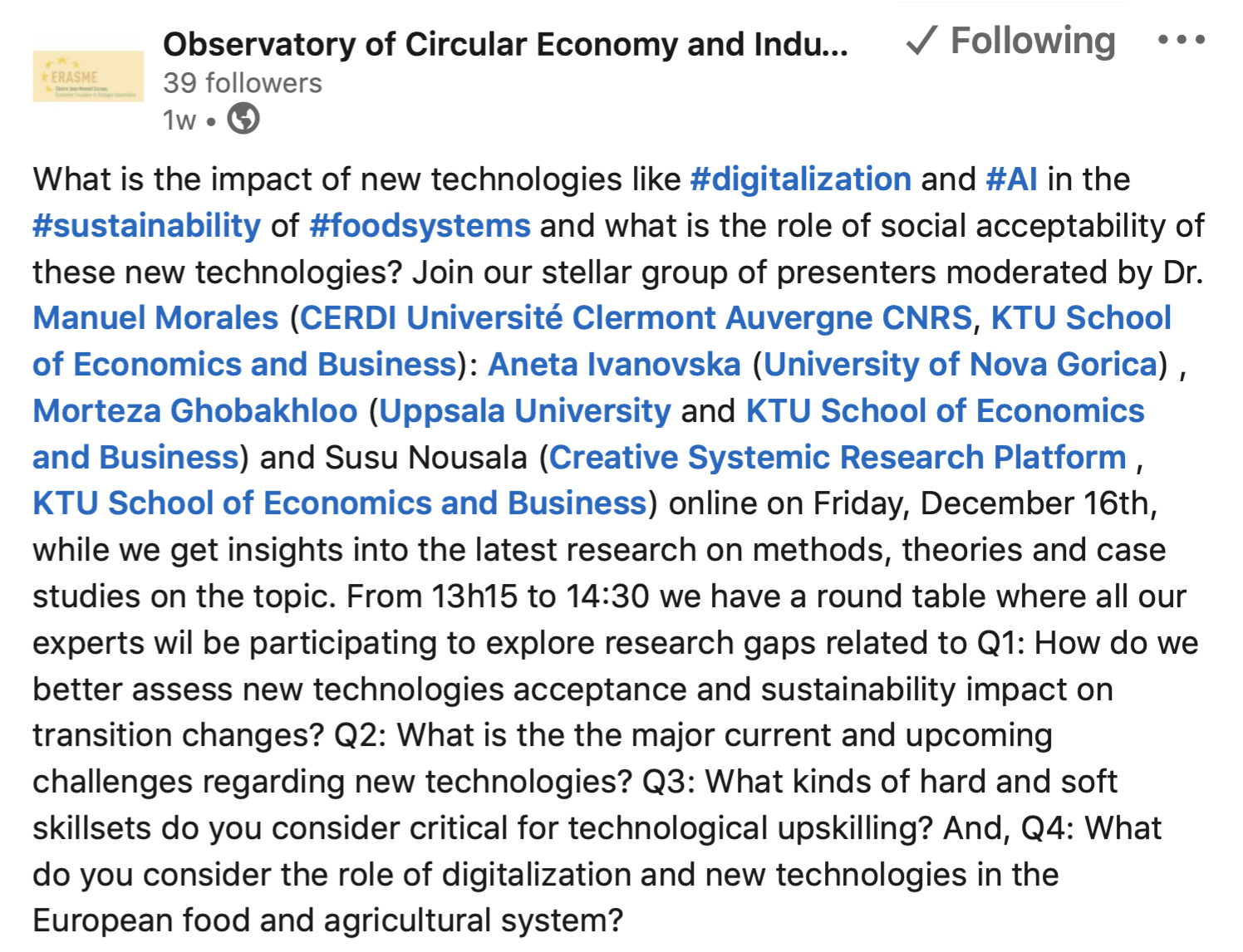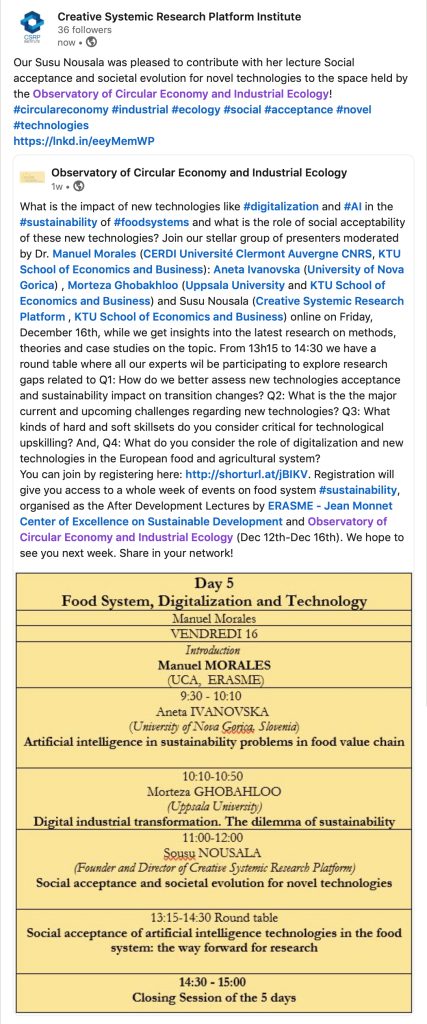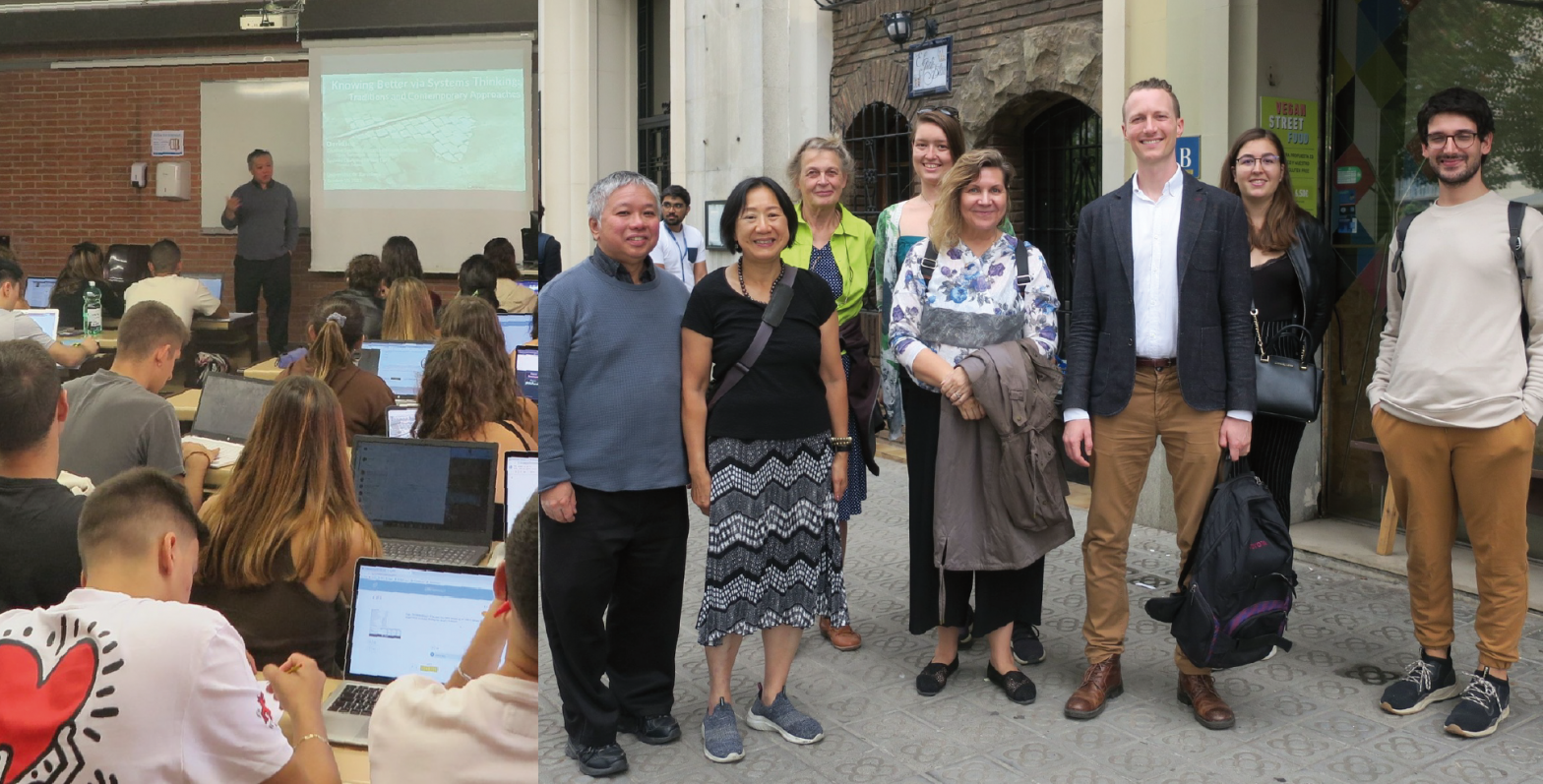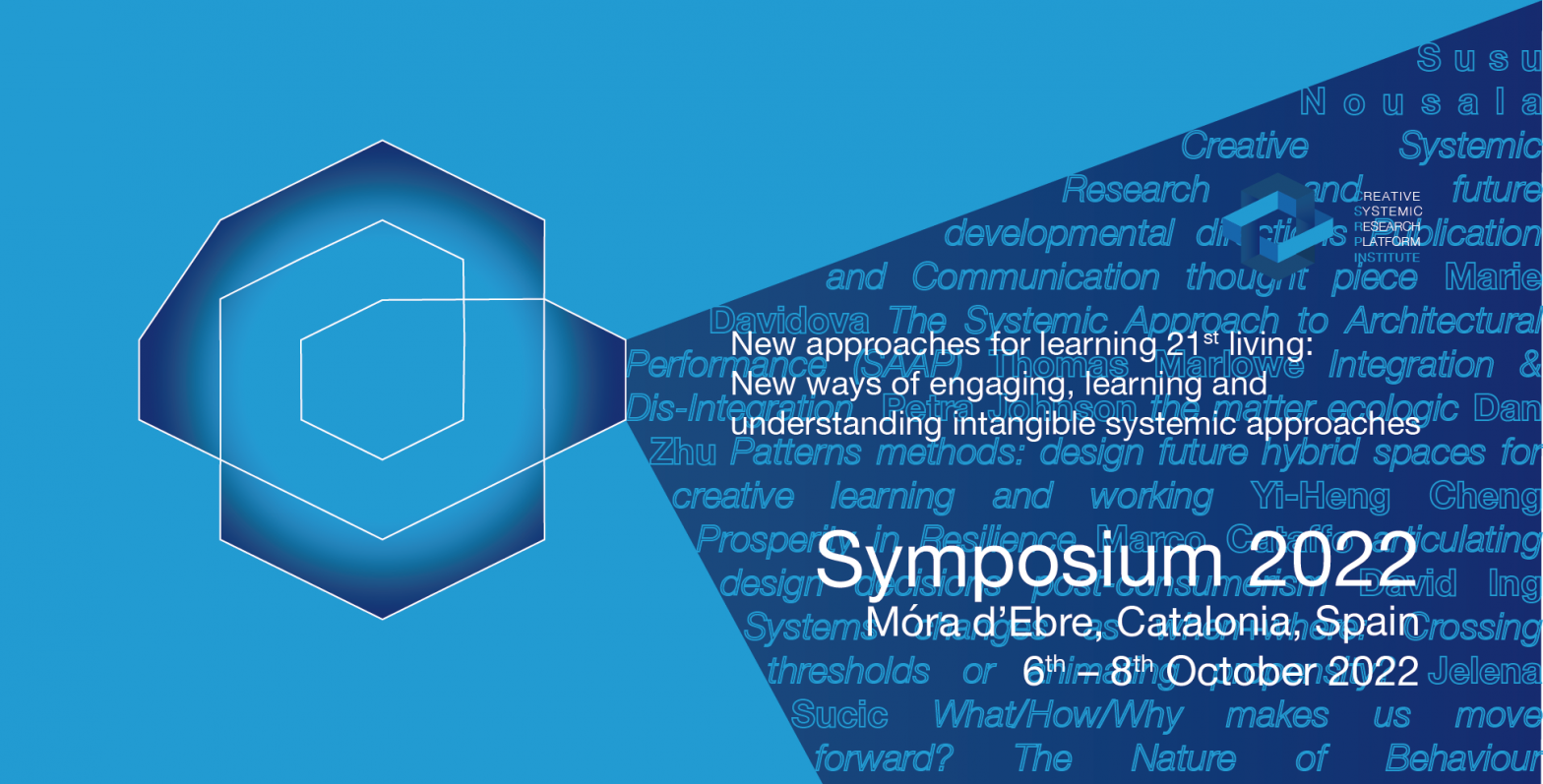The full book is open access and available for free in PDF format:
https://link.springer.com/book/10.1007/978-981-99-9730-5
For those who prefer a printed version, books can be ordered through Springer , or booksellers including Amazon.
Book Contents
1 An Introduction to Industry 5.0: History, Foundations, and Futures
Gary S. Metcalf
2 The Complexity of Sustainable Innovation, Transitional Impacts of Industry 4.0 to 5.0 for Our Societies: Circular Society Exploring the Systemic Nexus of Socioeconomic Transitions
Manuel Morales, Susu Nousala, Morteza Ghobakhloo
3 Coping with Industry 5.0: An Assessment of Evolving Soft Skills for the Workplace
Ryan Armstrong, Carlos Javier Torres Vergara
4 AI Upskilling and Digital Twins: A Service Science Perspective on the Industry 4.0 to Industry 5.0 Shift
Jim Spohrer
5 Industry 5.0 and Artificial Semi-General Intelligence. Exploring Future Challenges and Opportunities Within Industries and Societies
Andrius Grybauskas
6 Artificial Intelligence Capabilities and Hyperselfish Intelligence, the Possible Impacts, and Why Humans Need Industry 5.0
Rohan Fernando
7 Incremental Adaptation or Generational Shift?
David Ing
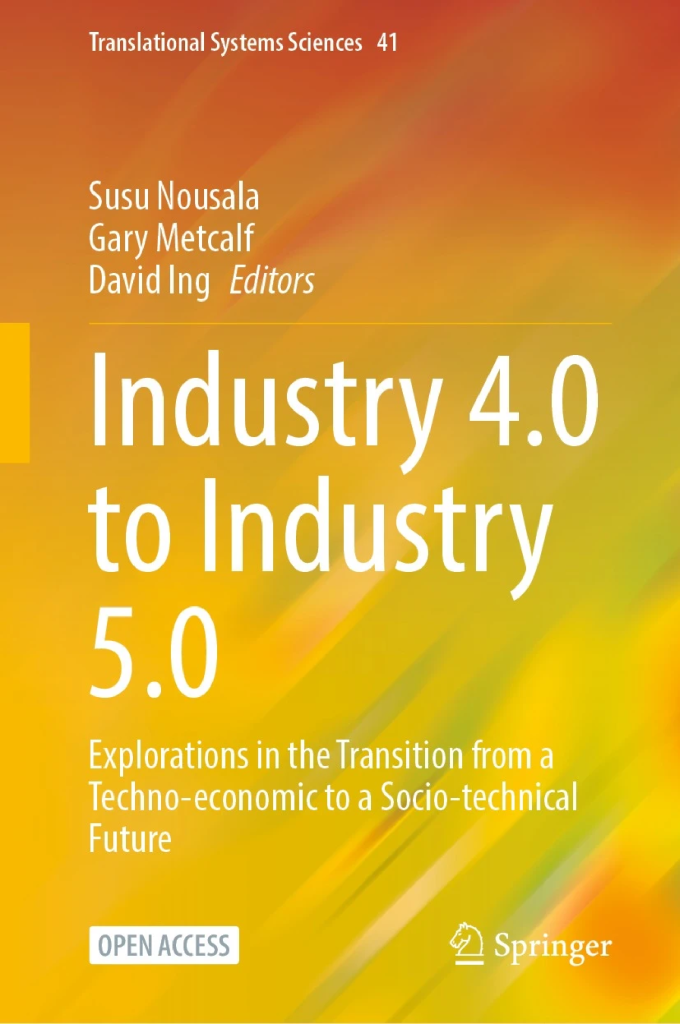
Industry 4.0 to Industry 5.0
Explorations in the Transition from a Techno-economic to a Socio-technical Future
Susu Nousala, Gary Metcalf, David Ing
10.1007/978-981-99-9730-5
978-981-99-9729-9
978-981-99-9730-5
Kaunas University of Technology
2024.
This book is an open access publication.
Open Access This book is licensed under the terms of the Creative Commons Attribution 4.0 International License (http://creativecommons.org/licenses/by/4.0/).
This Springer imprint is published by the registered company Springer Nature Singapore Pte Ltd.
The registered company address is: 152 Beach Road, #21-01/04 Gateway East, Singapore 189721, Singapore.
Why This Book?
The two main arguments for this book are its interdisciplinary perspective and its long-range if tentative view.
The chapters in this book offer multiple perspectives on the potential benefits, opportunities, challenges, and risks associated with the transition to Industry 5.0. They present, both individually and as a collection, an interdisciplinary view, interweaving ethics, a historical perspective, social factors, environment and ecology, and current threats, including climate change and the impacts of AI, identifying problems and suggesting solutions or at least possible paths forward. Beyond just the (much-needed) human-centric view, there is a focus on the interaction of Industry 5.0 with the world, and possible feedforward and feedback loops. There is a recognition that, while prioritizing human rights and dignity, both the health of the underlying economy and industrial base (and of the well-meaning and well-run enterprises implementing changes), on the one hand, and the health of the planet and the environment have to be respected. Further, it is understood that these factors are interwoven, and that major changes in any one need to be preceded by consideration of the effects on the other two, and subsequent interactions.
Moreover, for all three concerns—human, economic, and environmental, the book takes a long-term view, emphasizing sustainability and resilience. In systems engineering terms, design and implementation have to be preceded by and then accompanied by ongoing requirements and risk analysis, and careful and timely assessment to identify problems and support proper evolution. There is also an acknowledgment of the need to deal with different time scales. Some problems may become critical within a few years’ span; others may not get to that point for generations—but may be intractable if not addressed or anticipated immediately.
The long-term view, however, does not mean that the book aims to predict the future of the world, or of Industry 5.0, or of its major components and challenges, or that the authors and editors are foolish enough to think they can do so. Almost certainly, for example, no one can predict with any accuracy what AI will look like even by the end of next year, or what it will be doing, or what new challenges it will bring. Also, while the challenges of climate change are largely understood, predicting the rate of change or the sequence of problematic events is
difficult difficult at best. These difficulties are also evident through a gamut of stresses and relief, including political challenges to the world order, epidemics on the one hand and medical developments such as recent vaccines for malaria and cholera on the other, and totally unexpected developments such as cryptocurrency has been. For that reason, the remedies suggested in the book should be viewed not as long-term prescriptions, but as recommendations to be revisited and revised over time.
Rather, the book intends to present a snapshot of the issues, challenges, and possible paths forward as of late 2023, identifying the challenges and opportunities visible at this date, and steps that may work toward addressing the one and realizing the other. It would be wonderful if surprising if its projections were to prove precise and accurate, but a clear understanding of the present, and its (approximate) current position and velocity in the economic and social problem space, may be useful for those taking the next snapshot and seeking course correction.
Why This Team?
The project that resulted (if hopefully not culminated) in this book began with discussions among the Kaunas University of Technology (KTU) research team, who generously and foresightedly welcomed interaction and contributions from other parts of the world, giving the result an international and fully interdisciplinary flavor and breadth of perspective.
Moreover, the team includes practitioners as well as academics, and has chosen to offer a less theoretical snapshot, closer to the present, although the concepts of Industry 5.0, combined with systems science and a cybernetic view, guide the evolution of the text. It also recognizes that good science (and good economics) takes data, that data takes time to collect or generate—especially when examining long-term trends and concerns. Still, in the meantime, it is useful to provide as clear a picture of the situation as can be created, in part to improve the utility of that data once collected.
Not surprisingly for a deliberately interdisciplinary and multi-perspective volume, the editors and chapter authors have widely diverse backgrounds. Most are highly interdisciplinary themselves, having published on a wide variety of topics. Their collective expertise includes technology and computer science, engineering, ethics, philosophy of science, sustainability studies, interdisciplinary studies, education and pedagogy, social science, linguistics, the arts, and more.
The editors and authors also have a long history of interaction and collaboration, with regular formal and informal meetings, joint workshops and presentations, co-authorship, serving on thesis committees for or otherwise assisting each other’s students, and more. Many are members of the Creative Systemics Research Platform Institute (CSRP), as am I. CSRP has served as a virtual meeting space and intellectual clearing house for these discussions and others. From personal experience, while these collaborations have served to make each aware of the others’ work, and have in many cases broadened and deepened individual perspectives and background, each of the team retains a highly individual perception and articulation of intellectual issues, and a highly individual style of discourse and communication, as can be seen in the chapters of this book.
Overview
At the core of this book is the output of the IN4ACT research project funded by a Horizon 2020 grant from the European Union. The project was centered at Kauno Technologijos Universitetas (KTU), the Kaunas University of Technology School of Economics and Business, in Lithuania. On a four-year timeline from 2020, research was chartered to study the impacts of Industry 4.0, as the industrial sector in Europe was being redefined by the adoption of new digital technologies, new materials, and new processes. As Industry 5.0 became better defined, the researchers shifted to the broader scope of ecological sustainability, human centricity, and resilience to shocks after experiencing the COVID-19 pandemic. Nearing finalization of the study in 2023, the unanticipated rapid rise of Generative Artificial Intelligence raised new questions beyond the original charter of 2020.
In late spring 2023, the IN4ACT researchers convened an in-person symposium, inviting international scholars to broaden perspectives on unfolding events. An ambitious timetable to deliver manuscripts within the calendar year was set. A frame of immediacy compacted the views of (a) what we have learned, (b) what we know today, and (c) what we see on the imminent future. As the collective work began to take shape, the contributors expanded to cover three continents. Online instant messaging and email brought together converging and diverging perspectives.
Industrial and societal trends are being pushed toward concerns about sustainability, and human well-being. As the digitalization of Industry 4.0 has matured, the transitions toward sustainability, human-centricity, and resilience of Industry 5.0 continue to evolve. The meaning of human-centric was drawn into sharper focus with concerns on the potential benefits and misuses of Generative AI. The final positioning of this book grapples with the dilemma of the scholarly reporting on findings from four years of research, and well-informed insights into expectations for 2024.
About the Chapters and Their Crossovers
This series of chapters reflects a milestone for a multidisciplinary team of researchers with IN4ACT as the nexus. The knowledge accumulated spans years of interaction, both within the core team and across their extended networks. Those core relationships established a foundation for inviting like-minded contributors into a cohesive team of writers. Each chapter stands on its own, with autonomous author(s) coming from a variety of disciplines, cultures, and experiences. A common thread through the chapters is concern for human-centricity, as an industrial and societal transition unfolds. In the subtle distinctions made by each researcher, the astute reader may intuit entering a dialogue, as ongoing, and unfinished.
Chapter 1, written by a leading systems researcher, provides an historic and theoretical context on the development of technologies, from the first Industrial Revolution in the eighteenth century to the present day. The trail from invention of steam engines to Artificial Intelligence (AI) is not linear, but AI did not develop by accident, nor without precedent. Many of the cultural drivers of industry (efficiency and productivity) and of media (corporate-funded advertising and influence) continue to shape technologies and their applications. Whether the same drivers will continue to shape the technologies of the future is an open question.
Chapter 2 is coauthored by three of the lead researchers on the IN4ACT team. Drawing from findings and publications over four years of study, they offer views of iterations and layers of the transition from Industry 4.0 to 5.0. At varying scales, the benefits and impacts considered should include economic, environmental, technological, and social aspects. Applying a typology of discourses on Circular Economy, risks are surfaced on the possibilities of maintaining stability through socioeconomic and environmental transitions with human-centricity in the complex adaptive system. Two case studies of industry transitions in Europe are reviewed, as test beds of innovation.
Chapter 3 reflects the perspective of two researchers focused on organization development and performance management. The emphasis on human-centricity in Industry 5.0, at minimum, requires the development of hard skills, in applying the new technologies. Beyond this recognition of hard skills, the types of soft skills that would support successful transitions to Industry 5.0 are not yet well-understood. Both workers mature in their careers, and newly trained entrants into an industry face psychological challenges, business and managerial challenges, and structural challenges. Gaining a fuller appreciation of soft skills leads to questions on defining the term complexity in human organizations, transferability across contexts, and the evaluation of behaviors. Experiences teaching emotion regulation to lab scientists and economists provide insights into potential soft skills transition challenges with Industry 5.0.
Chapter 4 is contributed by a leader in the service science movement, a former research executive for IBM. While Industry 4.0 and 5.0 agendas have largely emphasized the production side of industry with manufacturers in Europe, the breadth of stakeholders is more widely surfaced. Service system entities, at multiple scales, are challenged to look beyond optimizing locally, toward investing in the global ecology of actors. Aims for AI upskilling to improve the productivity of business and nations raise concerns about the responsibility and awareness of actors in ethical use of the technology. Digital twins, as models that partially synchronize interactive capabilities, are better understood for machines than for people, organizations, and other service system actors. Service science is presented as an emerging transdiscipline in which the ecology of entities can be better appreciated,
Chapter 5 was authored by a sustainable economy researcher on the IN4ACT team, who completed his doctorate during the project. In the technological developments across Industry 4.0 to 5.0, the way in which job posting has changed reflects shifts toward human centricity for employees and businesses. The evolution in abilities of machines is characterized as (a) Artificial Narrow Intelligence, (b) Artificial Semi-General Intelligence (ASGI), and (c) Artificial General Intelligence (AGI). Beyond routine job automation, Industry 5.0 could see ASGI encroaching on fields with creative work. As a bold experiment, the Generative AI ChatGPT technology was applied to create the initial draft of the chapter. Scholarly citation of sources is not with the current capabilities of ChatGPT, so refinement by the author was still required.
Chapter 6 has been contributed by a digital technology executive exploring the combination of Human Intelligence and Artificial Intelligence. The aggregate is considered as a Hyper-Selfish Intelligence, where the drives of biological evolution could lead to Artificial General Intelligence producing a Super Intelligence. An argument is made for strong global regulation of AI to preclude human civilization from the most extreme risks. Industry 5.0 is seen as an opportunity to put social and technological development on a positive path.
Chapter 7 was written by a systems researcher with a prior career in consulting and market development at IBM. The labeling of 4.0 and 5.0 is reflected in a variety of generational shifts, including Schumpeterian innovation, the Japan Science and Technology Basic Plan, the EU Industrial Research and Innovation Commission, and the World Economic Forum. Version numbering is explicated to differentiate between incremental adaptations and generational shifts. The Age of Discovery circa 1492 Christopher
Columbus is portrayed in a transition from Era 0 to Era 1, with two synthetic perspectives of Socio-Technical Systems (STS) and Socio-Ecological Systems (SES). The current era is depicted as changes in SES as service economy alongside changes in STS as a knowledge society. The next era is described with changes in SES as a polycrisis ahead of changes in STS that would constitute a generational shift.
Reflections and Conclusions
While most book projects overlap stages and phases on timelines of years, this particular project faced the constraint of a 2023 funding deadline, compressing development into months. With that shortened horizon came the opportunity to bring the immediacy of the intriguing and influential public responses to the rapid rise of Generative AI in late 2022. These pressures of news headlines every day drove an accelerated timeline for slipstreaming considerations for AI into the book.
In effect, this writing team reflexively experienced the transition from Industry 4.0 to 5.0, in a microcosm. The mandate to create a book as a static artifact capturing the knowledge and experiences of the team ran counter to the give-and-take style of ongoing dialogue, via synchronous online meetings punctuated by drafts and revisions of collective learning. The team agreed to cast this project as a snapshot in time, as a milestone in 2023, comparable to a photograph in a hurricane. Recording the state of knowledge at a point in time was important, with a mindfulness that our dialogue has not ended. Hopefully, this book will serve as a foundation for many more discussions to come, about the state of societies in the midst of disruptive changes, and the possibilities for the decisions that we can make toward the better.
Author of the book overview
Thomas J. Marlowe is Professor Emeritus of Mathematics and Computer Science at Seton Hall, where he taught in both fields for over 40 years. He holds a Ph.D. from Rutgers University in each discipline. His research has covered areas including but not limited to coalgebras, programming languages and compiler optimizations, programming language aspects of real-time and embedded systems, software engineering and databases, computer science pedagogy including ethical considerations, and interdisciplinary studies.

